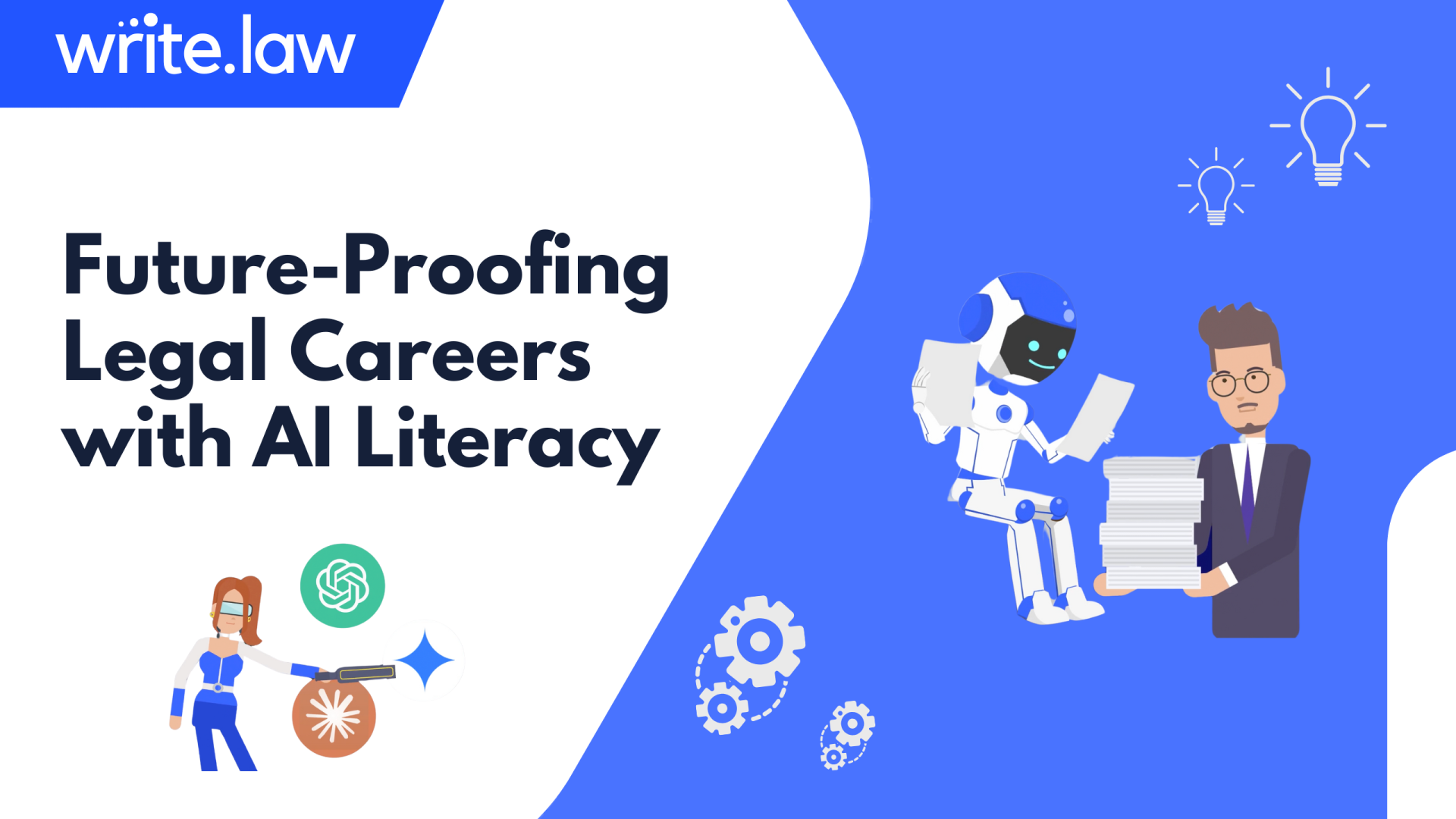technology
Future-Proofing Legal Careers with AI Literacy
Discover why AI literacy is becoming essential for lawyers—and how mastering key skills can help you thrive in a tech-driven legal industry.
-
Joe Regalia

Future-Proofing Your Legal Career: A Lawyer’s Guide to AI Literacy
Remember the days when mastering email or electronic discovery seemed cutting-edge? Fast forward, and today's lawyers face an even more powerful game-changer: Artificial Intelligence. AI isn’t just a passing tech fad—it's quickly becoming integral to legal practice. To thrive (or even just survive), lawyers must embrace AI literacy.
Why AI Literacy Matters for Lawyers
AI is no longer about the future; it's already reshaping the legal industry. Courts use AI avatars to explain rulings, firms deploy AI to review and draft contracts, and predictive tools are assisting lawyers in litigation strategies. Firms value attorneys who can seamlessly integrate AI into their practice—not just understand what it is, but actively leverage it to enhance efficiency, accuracy, and innovation.
Essential Skills for AI-Literate Lawyers
Becoming AI literate doesn't require becoming a data scientist—but it does involve developing a new set of critical skills
Understanding AI Fundamentals: Know how AI systems like machine learning and generative models operate at a basic level.
Recognizing AI’s Legal Applications: Identify where AI tools can be applied effectively, from research and contract review to litigation analysis and client interaction.
Ethical AI Use: Develop an understanding of ethical considerations, bias, privacy concerns, and transparency surrounding AI usage in legal contexts.
Collaboration with AI Tools: Comfortably interact with AI software, interpreting its outputs critically and refining your queries for more useful results.

Practical Steps to Build Your AI Literacy
1. Start with the Basics: Before diving into complex AI systems, get familiar with the foundational concepts. Resources like Coursera’s AI basics courses or introductory guides from reputable legal tech platforms are ideal starting points.
2. Get Hands-On Experience: Experiment with accessible AI tools already available, such as CoCounsel from Thomson Reuters, Casetext’s CoCounsel, or platforms like Lex Machina and Kira Systems. Even a few hours experimenting with these tools can drastically boost your AI confidence.
3. Participate in Workshops and Webinars: Attend sessions hosted by bar associations, legal tech companies, and law firms. These events offer practical insights, case studies, and networking opportunities with like-minded professionals.
4. Stay Updated on Ethical Guidelines: With rapid AI adoption, ethics and governance are evolving fast. Follow guidelines and updates from ABA, your local bar associations, and reputable institutions focused on AI governance.
5. Integrate AI into Daily Workflows: Don’t treat AI as an isolated tool. Gradually incorporate it into your daily processes—use it for document reviews, summarizing lengthy briefs, drafting emails, or conducting research.
Overcoming Common Roadblocks
It's natural to be cautious or even skeptical about adopting AI. Concerns often include reliability, data security, and the fear that AI might replace attorneys. Here’s how you can overcome these hurdles:
Trust but Verify: Always cross-check AI-generated outputs.
Stay Human-Centric: AI assists you; it doesn't replace your judgment or client interactions.
Continuous Learning: Treat AI as an evolving skill—regularly update your knowledge to stay ahead.
Case Study Spotlight: AI Literacy in Action
Take the case of a midsize firm that recently embraced AI literacy training. Within months, junior associates became proficient in AI-powered research tools, saving hours weekly. Partners noticed improved accuracy, higher-quality analysis, and increased capacity for strategic tasks. Clients recognized and valued the enhanced efficiency and innovative approach.
The AI-Literate Lawyer Advantage
Building AI literacy is not about tech obsession—it’s strategic career planning. Lawyers who adapt will not only remain relevant but become leaders. They’ll offer value beyond what traditional legal work alone can deliver, setting themselves and their firms apart in an increasingly competitive market.
AI literacy is your ticket to shaping the future of your legal career. Are you ready to take the leap?
Joe Regalia
Write.law co-founder Joe Regalia combines his experience as both practitioner and professor to create exciting new ways to teach legal skills. Learn more about Joe
Sign up for our newsletter!
Get writing and other legal practice tips delivered to your inbox every other Thursday.
Thanks for joining!
We’ve sent a welcome email to your inbox.
We’ve sent a welcome email to your inbox.
We're on a mission to make legal skills training engaging, effective, easy to use—and accessible to all.


